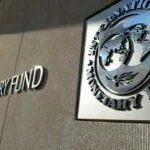With a moderate economic growth objective of around 5%, China’s National People’s Congress (NPC) has begun its annual parliamentary session.
The session, which started on Sunday in Beijing, is also expected to give President Xi Jinping a third term and undertake the most significant reforms to the political system in ten years.
In the report, outgoing Premier Li Keqiang stressed the importance of prioritising economic stability, establishing a target of at least 12 million new urban employment to be created this year, up from the aim of at least 11 million set for last year.
One of its poorest performances in decades, China’s gross domestic product (GDP) increased by barely 3% last year as a result of three years of COVID-19 restrictions, a crisis in its massive real estate market, a crackdown on private enterprise, and declining global demand for Chinese exports.
“Under the strong leadership of the Party Central Committee, we carried out COVID-19 response and pursued economic and social development in an effective and well-coordinated way,” the government report read.
“Overcoming great difficulties and challenges, we succeeded in maintaining overall stable economic performance,” it included.
According to the study, Li increased the objective for the government’s budget shortfall from 2.8% of GDP to 3.0% of GDP.
The biggest government reorganisation in ten years will be implemented during this year’s parliamentary session as Beijing deals with several issues and attempts to resuscitate its COVID-damaged economy.
Li and a group of economic policy officials more committed to change will leave their positions during this year’s parliamentary session to make room for Xi loyalists. Xi further solidified his hold on power by winning a record-setting third term as party chief at the October Communist Party Conference.
A longstanding buddy of Xi, former Shanghai party head Li Qiang, is anticipated to be confirmed as premier during the NPC and given the responsibility of reviving the world’s second-largest economy.
State media reported on Tuesday that Xi’s proposals for an “intensive” and “wide-ranging” restructuring of state and Communist Party enterprises will be discussed during the rubber-stamp parliament, which will expire on March 13. Analysts anticipate a further strengthening of the Communist Party’s penetration of state bodies.
China is currently facing several challenges on the international stage, including deteriorating relationships with the United States, which is attempting to prevent it from accessing cutting-edge technologies, and tense relations with Western Europe, a significant economic partner, over Beijing’s diplomatic support for Russia in its conflict in Ukraine.












